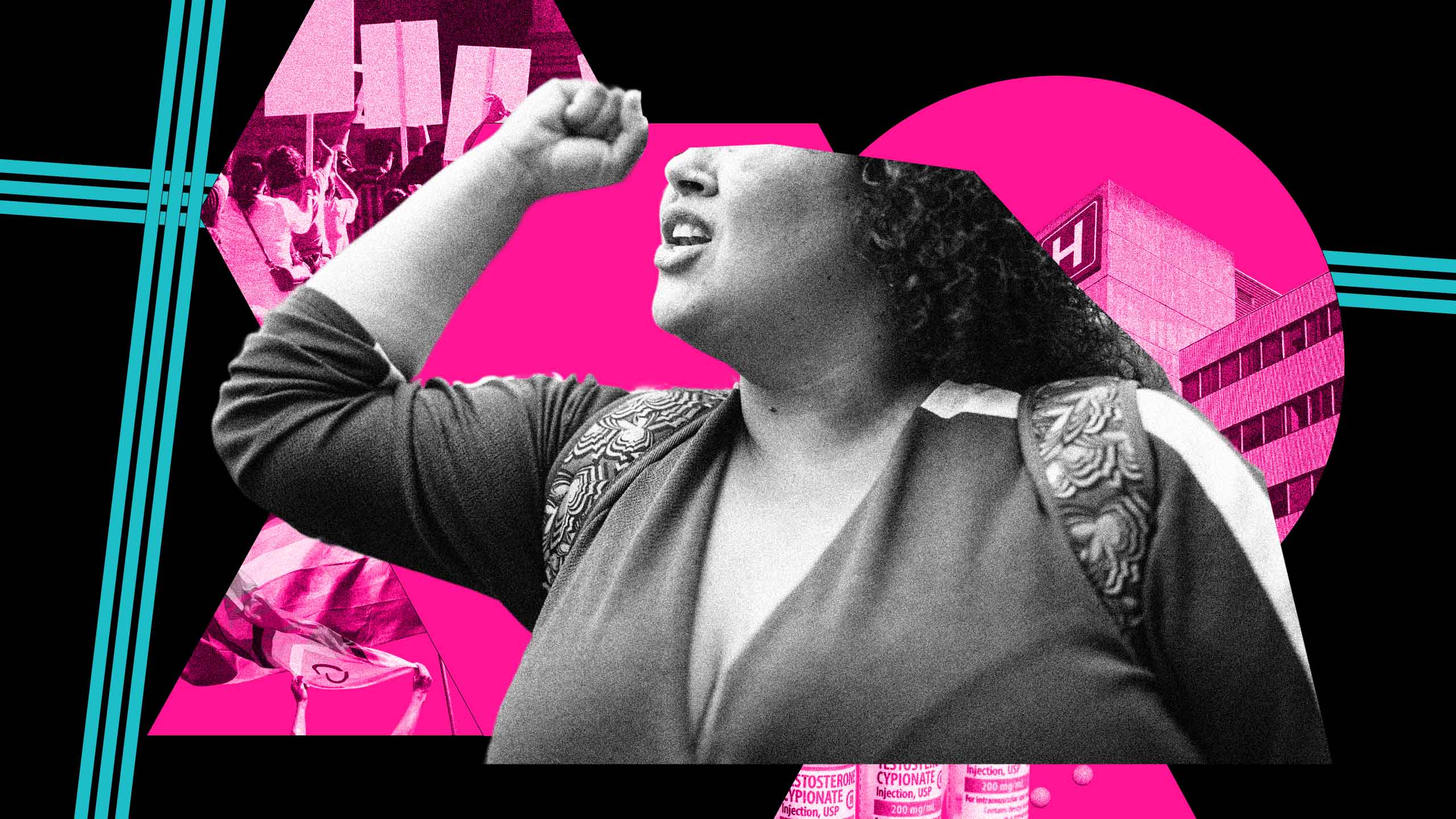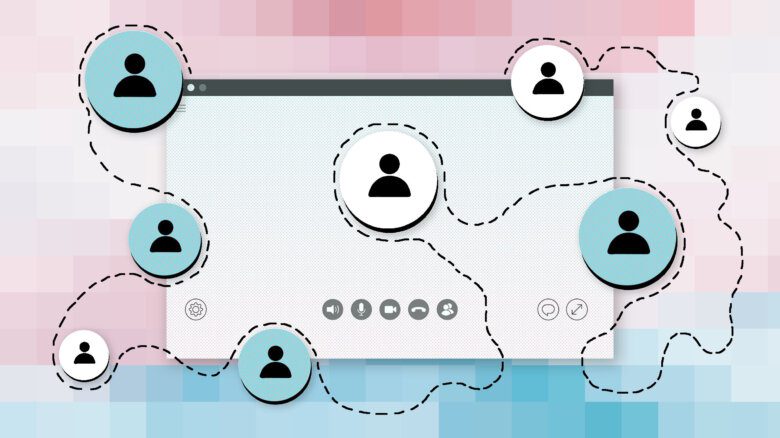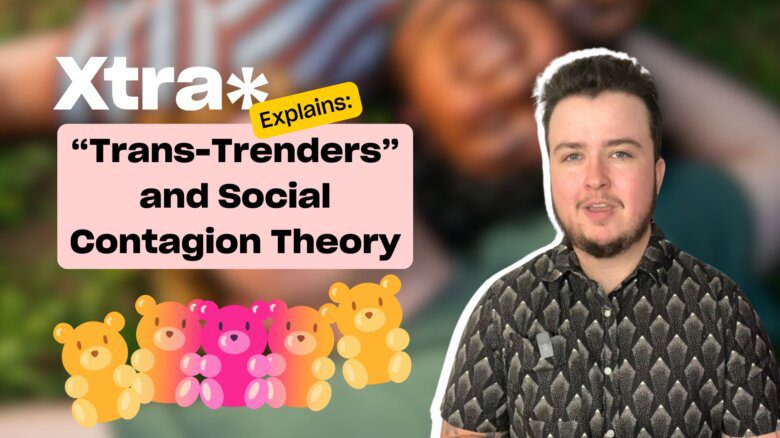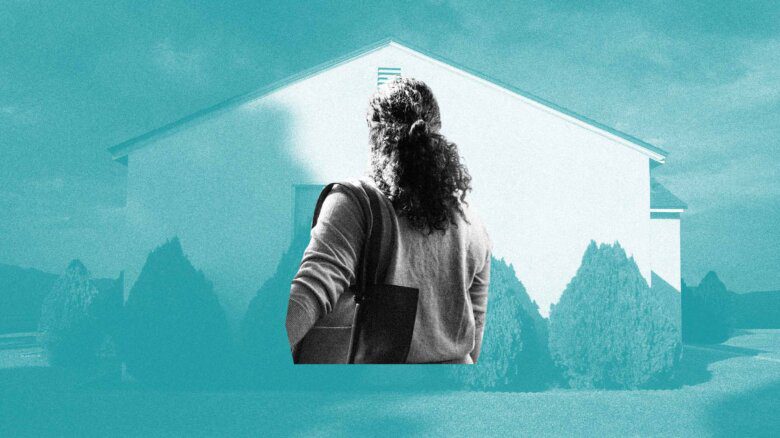This is the first instalment of Dangerous Space, a new column by Kai Cheng Thom in which she helps you unpack hot-button issues in the news, online and in popular culture—bringing nuance and compassion to conversations that often feel fraught.
Update: Since this article was published, Alberta has announced plans for legislation that will restrict health-care options for youth and require parents be involved in pronoun requests students make at school.
The past few months have seen a surge of social debate—some might say social panic—over the issue of children and youth who identify as trans. In September, the so-called “1 Million March 4 Children” swept through many parts of Canada, demanding (in their own words) “the elimination of the Sexual Orientation and Gender Identity (SOGI) curriculum, pronouns, gender ideology and mixed bathrooms in schools.”
The sheer impracticality of eliminating pronouns (all of them? Even in English class?) from schools aside, the objective of the 1 Million March and the underlying “gender critical” movement from which it emerged, can perhaps most compassionately be understood as the struggle of concerned parents to reclaim control over their children’s education and healthcare in a time when such control feels frighteningly out of reach.
It’s also important to note, however, that some in the movement are simply disguising straight-up transphobia with palatable “protect the children” rhetoric. Fear and controversy abound over trans issues in general these days, and never more so than when it comes to children—who, gender critical advocates claim, are at risk of being “sexualized,” “groomed” and rushed into medical transition treatments with potentially life-altering effects. All this is happening, gender critical advocates say, while the rights of parents to determine the course of their children’s educational and medical experience is being eroded.
Given that these fears are currently being propagated in the media, it’s no wonder that some parents—many of whom may have never knowingly met a trans person in their lives—feel afraid. Sadly, it’s also unsurprising that such parents might then support the recent controversial legislative efforts in Saskatchewan and New Brunswick that require parental consent for trans kids to change their names or pronouns at school. Yet amidst the fray, an essential voice seems to have gotten lost: trans and gender nonconforming young people themselves. (Alberta plans to introduce legislation that covers the same ground but goes further, including parental consent on medical decisions, in the fall).
As professors Robert Leckey, Samuel Singer and Florence Ashley write for the Globe and Mail, children are entitled to a broad set of human and legal rights, both here in Canada and by international law. These include, they write, “life and […] bodily integrity […]. Children enjoy freedom of expression, freedom of conscience, the right to liberty and security of the person and the right to be free from discrimination on grounds including gender identity and gender expression. Children also have privacy rights.”
As a signatory of the United Nations Convention on the Rights of the Child, Canada is committed to upholding a particular standard of children’s rights. This includes, according to the Convention, that a child has “the right to express those views freely in all matters affecting the child, the views of the child being given due weight in accordance with the age and maturity of the child.” In other words, from a legal perspective, children are not solely to be governed by the purview of their parents, but rather that they deserve to participate in making decisions that affect them. When it comes to trans youth, the “gender critical” movement all too often seems to take the opposite approach, refusing to consider that young people should get to decide for themselves who and what they are.
In regard to medical transition for youth, it’s worth noting that Ontario healthcare law presumes all people (including minors) to be capable of providing informed consent to medical treatment until proven otherwise. Indeed, a child’s right to decide on whether or not to proceed with potentially life-saving treatments in serious medical circumstances has been upheld on multiple occasions in Ontario. While other jurisdictions within Canada hold a variety of legal positions, the majority allow for the possibility of the “mature minor,” whereby a young person can make the case that they are capable of making a medical decision on their own based on their ability to understand the risks and consequences.
This raises a key question when it comes to caring for trans kids: To what extent are they to be considered helpless naïfs, blank slates to be sheltered from the influence of the world and the impact of their own decisions? And to what extent are they to be considered full persons with both the right and responsibility to make their own choices, albeit with extra guidance and bigger safety nets to account for their vulnerability? Considering this question, I am struck by how resonant it is with one of the great universal struggles of parenting, which is to say, the eternal balancing act of both protecting and empowering young people—and not allowing our own adult fears and hang-ups to overtake a young person’s dreams for themself.
“The notion of ‘parental rights’ is far too frequently confused with ‘the right to not have a trans child.’”
The 1 Million March and its supporters are a movement built around fear, and it makes all the sense in the world that parents would want to be involved in their child’s gender development. Indeed, they should be involved, whenever possible and as soon as possible to best support young people as they navigate complex psychological and emotional terrain. If there’s anything my years of clinical practice taught me, it’s that trans kids do better in almost every way when they have strong, close relationships with their caregivers.
Yet listening to and reading gender critical rhetoric, I cannot help but think that the notion of “parental rights” is far too frequently confused with “the right to not have a trans child.” This is the fantasy that if only parents could shield their children from ever meeting or learning about trans people in schools (“gender ideology”) and if only governments would outlaw medical transition care, then few or no children would come out as trans. It is the fantasy that by legally compelling schools to immediately disclose whenever a young person expresses gender nonconformity or gender confusion, parents might be able to intervene and stop it from happening.
In this fantasy, “parental rights” are attributed the power to halt transition, thus rescuing families from having to experience the fear and ambiguity of adjusting to raising a transitioning child. While not wanting to confront fear and ambiguity is understandable from an empathetic perspective, it is important to notice how such ideas not only assume that transitioning is an inherently bad or risky outcome, it is also centred far more around parental anxieties than it is a young person’s needs.
Gender exploration and transition are complex topics for anyone at any age, but particularly when it comes to children and youth. Unfortunately, dogma on all sides of the debate tends to drown actual young people’s needs in the extreme rhetoric of protectionism—the belief that someone, whether it be the state or the healthcare system or parents, needs to seize control and make the rules.
Yet real care for young people involves building real relationships and creating real trust, ideally in a support network that includes their families, and both healthcare and education professionals. It involves making decisions on a case-by-case basis in a way that supports the young person’s growing capacity to understand risks and make choices for themselves. It involves treating young people like people, rather than property or political symbols—something that all of us would do well to remember.


 Why you can trust Xtra
Why you can trust Xtra


